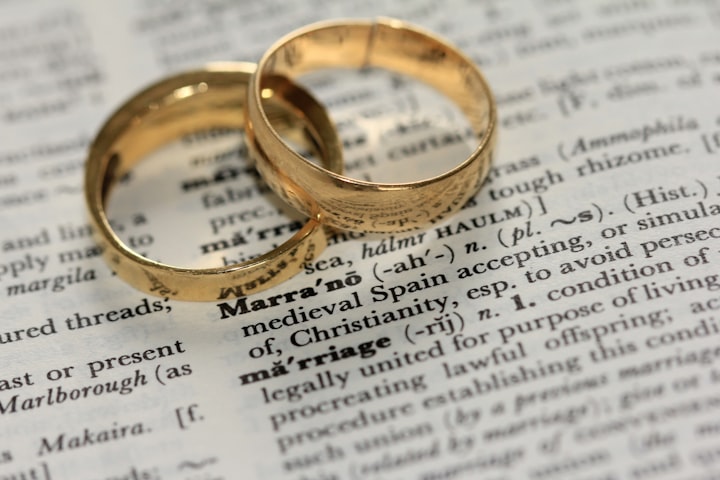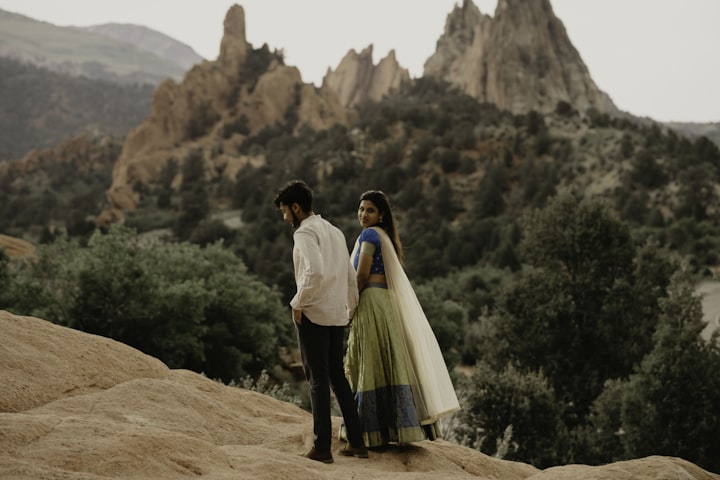
"Marriage is not a ritual or an end. It is a long, intricate, intimate dance together and nothing matters more than your own sense of balance and your choice of partner."
:::
By Bill Malone
As long as men and women remain unequal partners in both marriage and family life, inequality and conflict will remain. Equality of marriage has to be a moral aim and the legal right to marry has to be recognized as such.
But as long as couples still manage their own relationship, and judges can still insist on a civil standard that conflicts with private conscience, and politicians can still vote as they wish on matters of equality and conscience, then we will continue to make a mockery of our constitutional system. If we stop taking sides in family life, and start accepting responsibility, personal judgment, and impartial analysis, then we can start talking about the important question:
Can we save the institution of marriage from disintegrating in our own lifetimes?
Can we accept the logic that the adult woman is the head of the family and let her manage her marriage and family life in a way that does not jeopardize equality for herself and her partner?
Will politicians and judges who oppose marriage equality in their personal lives, or even in their official policy making, begin to explain their views in a manner that allows their judgments to be understood?
Marriage equality has been an emotional topic for politicians and voters alike for decades. If we stopped struggling over the details, and started taking the long view, then we could offer our voters the evidence that could justify electoral approval of marriage equality.
Marriage equality will not solve all the problems of our society, but it will not hurt our chances of solving any of them either.
"Marriage is not a ritual or an end. It is a long, intricate, intimate dance together and nothing matters more than your own sense of balance and your choice of partner."
"Marriage equality is vital for many reasons. For one, marriage equality will restore the value of equality in our society and particularly in our marriage laws. Those who oppose marriage equality will make use of every issue that might oppose it. We must be sure that we have solid, solid reasons for taking our votes on this issue and not just following public opinion or public support.
But we cannot forget that this public issue concerns real people. It's a legal reform that affects millions of real families. For most of them, marriage equality will not change anything. They will not suddenly be divorced or widowed. They will not suddenly need to explain why they want their marriage to continue and why they are entitled to the same benefits and responsibilities as all married people.
Instead, marriage equality would just change the legal structure of their family. This will be an important social and legal change. But it would not diminish their sense of balance and judgment or cause their marriage or family to fall apart.
If we accept the argument that marriage equality should not be enacted on the basis that it will be damaging or threatening to marriage or family life in general, then our reasoning becomes almost entirely political.
And we have to acknowledge that there are no easy answers. Most politicians will only come out in favor of marriage equality on the basis of arguments about fairness. And if fairness is the overriding political motive, then this makes our debate even less civil and even less useful in doing justice to the facts.
Our society will always be driven by politics. We cannot understand why public opinion matters. Why some families are less equal than others. The private sphere is a complex arena. Arguments about unfairness and equality are rarely precise or clear. But they are necessary to establish the best way forward in the difficult task of building a better society and a better family. If we stopped caring about defending the legitimacy of marriage, our debates would stop making a mockery of our legal system, and politicians and their pundits could begin to offer an adequate explanation for their judgments.
"Marriage is a civil right. Civil rights are not protected simply by 'education,' or even by political pressure. Civil rights are defended by legal arguments. When a civil rights bill is introduced in the Australian Parliament, it will be argued, informed by the available evidence and over the details, and our political leaders will offer their judgment. Their judgments, like their speeches and their votes, will be part of our normal political process.
Those who oppose marriage equality are not asking for more time or an explanation. They are asking for our submission on the basics of legal and political argument. When we respond to their demands for evidence and argument with justifications about fairness and practicality, they will no longer be asking for reasonable arguments. They will be attacking and challenging our reasons. This is not a rational, civil discussion of equality. This is a rationalization of why equality matters and why our judgments must be shared by everyone.
"Marriage is not a ritual or an end. It is a long, intricate, intimate dance together and nothing matters more than your own sense of balance and your choice of partner."
About the Creator
umer ali
You Might Learn A thing or two here






Comments
There are no comments for this story
Be the first to respond and start the conversation.